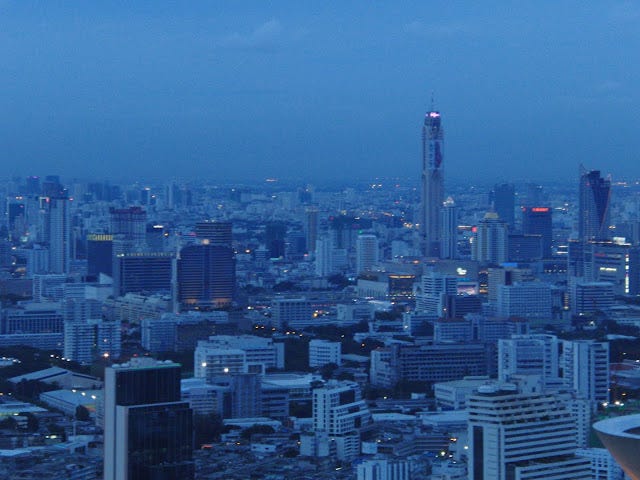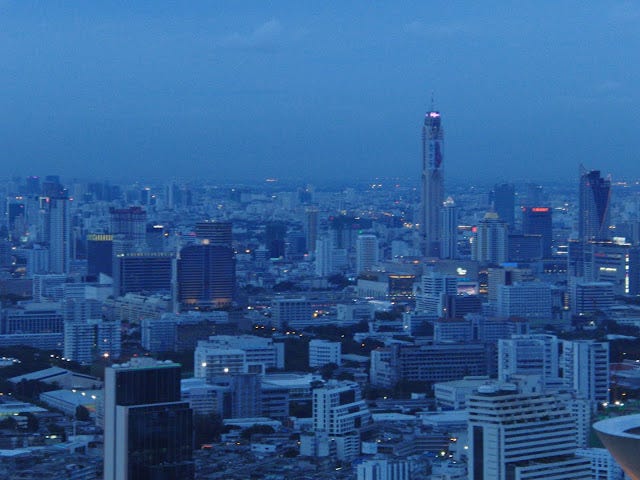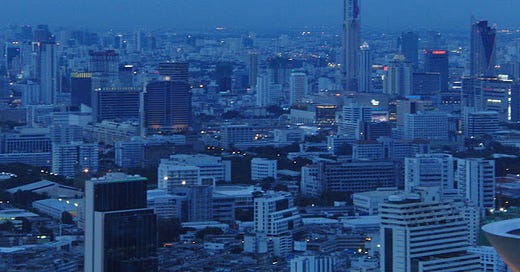*

Peter has gone off to Cambodia this morning; and suddenly they were alone again in an apartment he loved but could not afford; and everything trekked backwards. Organised, he was a threat to others; but appeared charming none the less. He tried to make himself a small target but was there anyway, ready for any major disaster which needed a reporter. In the blood. Nothing changed. Then there were so many other projects to accomplish. Slowly getting organised; these things were slowly taking precedence as he scrambled to make more cash. Here in the aftermath. There in the fall. Splattered and rebuilding, mud on the side walk, a sticky glue which ate away at everything, a crying maul, a desperate melancholy, a final laugh. There was nothing left of lost love but a few digital images; caught briefly on a malfunctioning phone. And a memory imprinted in his brain which bore no relationship to reality; those astonished, sceptical looks, a boy like that, so obviously poor, and in the meantime, because poverty bore no relationship to availability, here in the nightfall, there in the afternoon, he systematically retraced his steps; felt moved towards another place, caught an empty fragment drifting through the air, recovered, physically, slowly, and said to a new boy: I love you, in the Thai sense, I take care of you, you take care of me, as long as the money lasts I like you.
I worry about money, I hope, success, he explained, as he sent off another proposal for another book, another wad of money, relied, carefully, not just on days gone by but on the completion of offered projects, on the source of all revenue, on time frames which were both infinite and immediate, on gathering storms and quickly departed squalls, on everything he had hoped for and disasters easily recognised, easily rid of. He was finally starting to function again. You very funny man. Well yes, in some circumstances. But he sat there irritated at all the God talk and the profound levels of hypocrisy, idiots talking about gratitude and humility, how they had struggled, because they were simply so intelligent and so accomplished and so financially secure, to find a place for humility in their lives. Give it a rest, he thought, and couldn't wait to get out of the cloying atmosphere, to depart quickly and fairly, to find someone normal to talk to. I find them so hard to sit through, he explained, when someone followed him out, the only person in the room with less time up than him, and that was the way of it, in these treacherous shoals. Today he would join the millionaire's meeting, the women who lunch, who never have to go to work, who live off their husbands; all of whom could pick up a gorgeous Thai lady for a fraction of the price and a fraction of the grief.
As Tommy said: she annoys me for a fraction of the price of my former wife. They laughed. It was the first funny line of the day. And this morning Peter, the tall multi-media artist from inner-city Sydney he had grown so fond of, headed out first thing in the morning to the bus station at Mo Chit and off to Cambodia, and he was once again alone in a city of 15 million people. Well not exactly alone; but without an English speaker in the house. His Thai was still coming along slowly. There was a crass incompetence. There was a display, fanning out, territorial. Last night Peter decided he wanted to eat Indian, something which did not appeal to Aek, who like most Thais blatantly doesn't like Indians - they all regard the joke if you see a snake and an Indian who do you shoot first, answer, the Indian, as hysterically funny - but the local Indian restaurant was entirely empty; not boding well, and the only staff in sight was a Thai/Chinese. So they headed off to Middle East Street and the restaurant on Sukhumvit Soi One they had adopted as their own and where the scenes that unfolded before them could only occur in Bangkok: the Indian lady boys smoking hookas, the downtrodden Thai staff, the touts in the street, the women in their black burquas shopping in the stalls, the children scrambling through the colourful crowds, the Africans in the soi opposite huddling, dealing, the only place in Bangkok where heroin was reportedly easy to get.
They ordered butter chicken and naan like all good Westerners and a hookah for afterwards; apple flavoured; and watched the various Indian, Middle Eastern, uncertain origin men around them smoking their various flavoured tobaccos, the air thick with scent, while Aek refused to have anything but a coke; looking around him, sad after the funeral of a friend's father. He had made merit by helping to pay for the coffin. Everything was quiet. These were moments when he felt entirely at home; the city around them; all quiet, the trips to the countryside a thing of the past, these scenes could only occur in a city which was a major cross roads for the world, where regulation had not stifled almost all human activity, and the women draped in black with what looked like metallic frames across their faces, incongruous in 2010, sweeping up and down Middle East street, sometimes in clusters with children in tow, sometimes almost alone, the men, sometimes deranged, sometimes handsome, rarely attentive, the seething heat, the children running from underfoot, the drifting smoke from the hookahs, the persistent woman insisting that they buy a small cage of birds and release them, others shining torches which threw little green dots everywhere, others peddling hand carved motorcycles, Chiang Mai trinkets, anything and everything. The heat, the crush, the congress, you needed money to survive or you weren't a part of any of this. Days crawled and fled; and there was no such thing as certainty. He could always walk down the road and buy another one, another life, another love. He could always walk down the road and never return. Or he could embrace the congress and never go back to his life of old.

THE BIGGER STORY:
http://www.theage.com.au/federal-election/rudds-return-casts-a-silent-shadow-20100718-10g3u.html?autostart=1
FORMER Prime Minister Kevin Rudd returned from the US yesterday, and immediately turned into an irritant for Julia Gillard's campaign - without saying anything about politics.
Ms Gillard and Deputy Prime Minister Wayne Swan appeared to see Mr Rudd's campaign role differently, although both tried to dodge questions about him.
Ms Gillard said: ''I anticipate that Kevin will be predominantly focused on work in his local electorate.''
But earlier Mr Swan, pressed on Channel Nine about whether there was a role for Mr Rudd in Labor's campaign, said: ''He's certainly welcome in the campaign.''
Ms Gillard, appearing at a joint news conference with Mr Swan in Brisbane, was peppered with questions about Mr Rudd. Asked whether she would campaign in Mr Rudd's electorate of Griffith, she said, ''I will as prime minister go where I'm needed to campaign.''
Ms Gillard has repeatedly promised to offer Mr Rudd a senior ministry if she is re-elected but won't say whether he would get his preference: foreign affairs. A Channel Nine Galaxy poll last night found 61 per cent thought he should get the foreign ministry. A News Limited Galaxy poll found 57 per cent thought Mr Rudd's treatment would harm Labor's re-election chances.
The Rudd issue is sensitive in Queensland. Mr Swan admitted the resentment about Mr Rudd's treatment was ''certainly a factor'' in Queensland but the predominant factor was the Gillard-Abbott head-to-head.
Mr Rudd and his wife Therese Rein flew to Canberra where his son Marcus is at school. He refused to answer questions, saying only he was glad to be back home in Australia and looking forward to going to Brisbane.
Mr Rudd's spokesman said they were helping Marcus settle into the new school term. ''Following this Mr Rudd will be returning home to Brisbane. Mr Rudd will focus on campaigning in his electorate of Griffith starting on Wednesday. As Mr Rudd has said consistently, his efforts will be focused on the government's re-election.''
http://www.msnbc.msn.com/id/38264222/ns/technology_and_science-science/
Remote-controlled cameras sent down to depths of more than 4,500 feet in the Coral Sea have brought back unprecedented views of six-gilled sharks, giant oil fish, swarms of crustaceans and nautiluses that have been compared to "living fossils."
The images were captured at Osprey Reef, off the coast of northeast Australia, 220 miles (350 kilometers) from Cairns. The Deep Australia research team, led by Justin Marshall of the Queensland Brain Institute, said the findings will contribute to deep-sea conservation as well as neurobiology.
"Osprey Reef is one of the many reefs in the Coral Sea Conservation Zone, which has been identified as an area of high conservation importance by the [Australian] federal government," Marshall said in a news release. "Therefore, it is paramount that we identify the ecosystems and species inhabiting the area."
The team developed deep-sea cameras and instrument platforms to document the creatures of a deep-sea realm beyond the reach of sunlight.
"We simply do not know what life is down there, and our cameras can now record the behavior and life in Australia's largest biosphere, the deep sea," Marshall said.
The scientists focused their attention on nautiluses, relatives of squids and octopuses that still live in shells, as they have for millions of years. "Learning more about these creatures' primitive eyes and brain could help neuroscientists to better understand human vision," research student Andy Dunstan said.
Marshall pointed out that squid nerve cells gave scientists their first insights into how nerve cells function and communicate. "We are now returning to these original model systems, both for their own intrinsic interest and also to better understand brain disorders which lead to conditions such as epilepsy," he said.
In September, the researchers are scheduled to travel to the Peru Trench, off South America's western coast, where they plan to film and capture deep-sea species more than a mile beneath sea level. One creature they hope to encounter is the giant squid, which has the largest nerve cells found in nature.

Photograph: Peter Newman.



